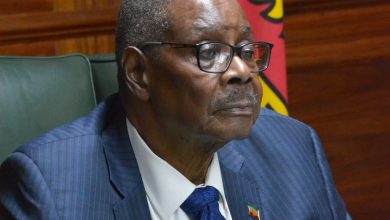PPDA moves to curb procurement abuse
Public Procurement and Disposal of Assets Authority (PPDA) director general Edington Chilapondwa says the agency is optimistic to curb rampant abuse of single sourcing and restricted tendering in public procurement powered by a new law.
The new PPDA Act came into force on March 31 2025, replacing the PPDA Act of 2017.

Briefing the media in Lilongwe yesterday, Chilapondwa said under the old law, officers could collude with sole suppliers to inflate prices while the new legislation imposes strict personal liability. This means that any officer found transacting in a procurement contract with grossly inflated prices risks disciplinary action, including dismissal.
PPDA held the press briefing to announce the digitalisation of government procurement processes via the Malawi National Electronic Procurement System (Manep), an e-procurement platform.
Currently, 32 procuring and disposing entities (PDEs) have fully transitioned to the digital platform.
Chilapondwa said PDEs should now rigorously justify why a specific supplier is the sole source and provide market research proving the price is reasonable.
He said: “Both the PPDA and the ACB [Anti-Corruption Bureau] will conduct independent verification before approving any single-source request.
“Restricted tendering was highly abused due to undisclosed beneficial ownership. One person sends five companies competing, yet they belong to one person.”
Chilapondwa stressed that there is now mandatory disclosure of beneficial ownership, adding that no bid will be processed without this declaration. The move aims to expose individuals hiding behind multiple companies to simulate competition where none exists.
Some provisions in the Act include a requirement that bid evaluation must commence within seven days of bid opening. This is designed to enhance procurement efficiency.
Furthermore, PDEs are now required to submit requests for clearance to use the single source procurement method directly to the ACB for expedited processing.
During the briefing, Chilapondwa also clarified the treatment of Government-to-Government (G2G) arrangements under Malawi’s procurement laws.
He said the acceptance of G2G deals rests within the nation’s entire legal framework, not solely procurement regulations.
Chilapondwa also said while the G2G has some exemptions, the arrangement is not exempted from other laws such as trade law, among others.
He added that the Attorney General (AG) is central to ensuring applicable laws are followed by the government.
Last year, PPDA rejected the National Oil Company of Malawi’s (Nocma) request for a ‘no objection’ to single-source procurement of fuel described as essential to avert a potential fuel shortage crisis in the country.
Nocma requested the PPDA board to grant the ‘no objection’ to single-source and restricted tendering to import 100 000 metric tonnes of fuel from His Highness Sheikh Saud bin Saqr al Qasimi of the United Arab Emirates (UAE), with payments to be made in Malawi kwacha.
But PPDA rejected Nocma’s request due to non-compliance with regulatory requirements.





